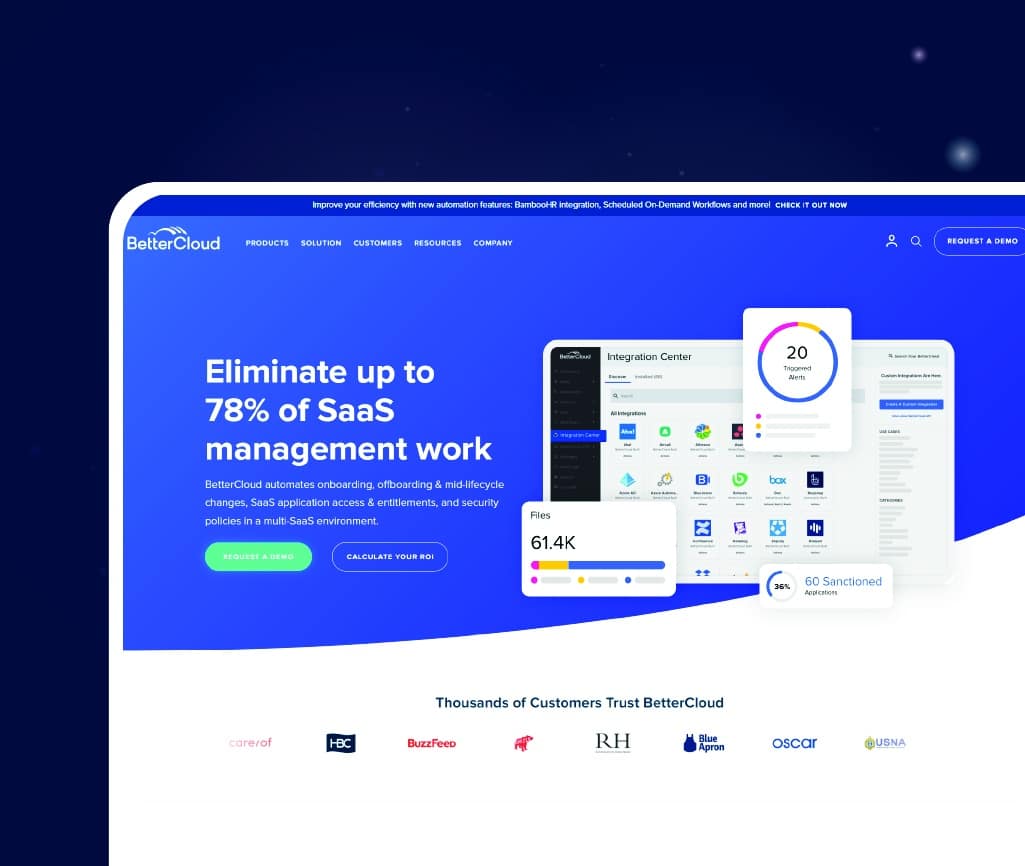Strategy
7 minute read
Should You Change Marketing Agencies? 7 Signs That It’s Time.
LAST UPDATED:
July 11, 2023


As a marketing manager, you’re in a position where you need to deliver results. As you take on one marketing campaign after another, you will likely have relied on one party to help your business — your marketing agency.
For a while now, you may have had one on your payroll. Delivering the results you want, your marketing company may have amazed and impressed you and your team — at least, early on.
Lately, you’ve noticed a few red flags, like inconsistent results and some serious nickel-and-diming. You may be inclined to ignore these signs, giving the marketing company the benefit of the doubt. However, sometimes, it’s just time to rip off the band-aid and sever ties.
Nothing good lasts forever. If this is true, then something that’s going bad shouldn’t be allowed to go on at all. It’s said that client-agency relationships are ending faster than ever, at an average of 3.2 years. Notice any red flags, and it may be high time for an agency overhaul.
Reading this, you’re probably wondering if you should change marketing agencies. So, should you?
Here are seven signs that you should start sunsetting your services with your current marketing agency!
Telling your marketing company that you’ll be terminating your contract with them can feel awkward.
Indeed, sunsetting a service with an agency you’ve built rapport with can be an uncomfortable experience.
But, let’s face it. You hired for results.
Between hiring your agency and getting those results, things need to be in order. If your agency is disappointing your business in more ways than one, you’re better off with a different agency.
How do you tell if it’s time for a change?
1. Poor Communication
It may sound cliche, but communication is the foundation of any relationship — whether it’s a romantic or business relationship.
Nowhere is this truer than in your relationship with your marketing company. Usually, many of the problems you have with requirements and deadlines have communication as the limiting factor.
Sure, the occasional report getting lost in the mail or interweb need not be a deal-breaker.
Nevertheless, when instructions and content briefs start getting lost in translation regularly, you’ll have to rethink your choice.
Consider getting the frequent cold shoulder another red flag to change marketing agencies. You can count excruciatingly late responses that drag beyond the 48-hour window as warning signs as well.
The bottom line is this:
An agency worth its salt should be easy to get in touch with for any concern or subject matter. To achieve this, your agency must keep the lines of communication open.
Anything less is a sign to ditch your current marketing company.
2. Difficulties With Collaboration
Think of your marketing campaign as a carriage. You and your marketing company are the two horses pulling the carriage forward. If you and your agency are on the same foot and are clear about what needs to be done, guess what happens?
The carriage goes forward and farther.
Now, let’s envision a different scenario. Imagine what takes place when you think your marketing strategy should go in one direction (and it should go your way), and your agency thinks otherwise.
That’s right. Your marketing campaign either stays where it is or ends up in a ditch.
Collaboration begins with being clear on goals and responsibilities. You and your marketing company need to have clear ideas about what you want out of the marketing project. From here, both of you need to know who is responsible for what.
Then, and only then, can you expect results. However, if your marketing company doesn’t share your vision nor does what needs to be done, it may be time to leave the other horse in the stable.
3. Unreliability
When you hire an agency, you’re paying for several things. You’re paying your hard-earned money for the tools they’ll use, their staff, and their expertise. Other than those things mentioned, you’re also paying for their ability to deliver results consistently and on time.
Reliability is something you cannot put a price on. An agency that proves to you time and time again that it can deliver on time is worth keeping. The presence of reliability is crucial. It is established as soon as you sign a contract and make your first payment.
There are two indicators for unreliability. One is the inability to deliver results on time. Punctuality is something you can establish from the get-go. An agency that blows the first impression and turns in reports late is a clear red flag.
Another sign of unreliability is inconsistent results. Sure, nothing will be on par with your expectations 100% of the time. However, when there are dramatic dips in performance, you should be concerned.
If an agency does not keep up with your requirements and deadlines regularly, it’s a sign that you cannot trust it. In short, it is an unreliable agency — one you’re well within your rights to change.
4. The Agency Remains Deaf to Your Input
Indeed, when it comes to marketing, nobody is supposed to wear the hat of an expert other than your agency. However, there is a caveat to this.
In truth, nobody knows what you want better than you. Your marketing company should go into business with you understanding this. Brilliant as an agency’s ideas may be, it should work with you and not against you.
Turning a deaf ear to what you need to say not only brings about communication problems but also allows collaboration to take a hit. More importantly, allow your agency free reign of your campaign, and you might end up with marketing that tells their story — not yours.
5. Lack of Transparency
Are you dealing with an agency that uses more passwords than the Pentagon? Do you find yourself having to ask for login details to tools on a near-daily basis? If you’ve answered “yes” to both, then you’re dealing with an agency that’s not being transparent with you.
Transparency can put a huge dent in your trust. The marred trust can carry over negatively to how you communicate and collaborate. So, if you see any sign that your agency isn’t shooting straight with you, move on to a better one.
What should you look out for? Other than a password-protected way of doing things, watch out for:
- The agency refuses to fully explain their strategy
- The agency does not divulge to you who’s working on the project from their side
- Adds charges to an invoice without specifying the reason
- Adding extra items to the invoice you need to pay without letting you know ahead of time or consulting with you
6. No Accountability
Nobody wants to work with a person who’s an Olympic-level athlete in playing the blame game. A lack of accountability appears as a refusal to own up to mistakes or errors — albeit unintentional.
Granted, when a strategy fails, nobody is without fault. But, when the agency doesn’t acknowledge what it could have done better, you need to rethink your relationship.
A marketing company that lacks accountability will attribute the shortcomings of a marketing campaign to everybody but its employees and management. In most cases, they will point to your “lack of clarification” or your “delayed payment.”
7. The Results Just Don’t Show
Ultimately, why does any marketing manager hire a marketing agency? Management hires agencies for results.
If results just aren’t there within the agreed-upon time frame, the agency may not be up to the task. It’s that simple.
If this is the case, politely inform your agency that you’ll be going with a new agency that will bring results.
We’ve gone over when to change marketing agencies. But, is it possible to give yours a second chance? The answer is, “yes!”
Here are the few instances where you need to reconsider sunsetting your marketing agency:
1. Extenuating Circumstances
Through no fault of anybody, setbacks occur. A hiccup can be the product of force majeure or something like 2020.
Sometimes, you need to acknowledge that life gets in the way of your marketing aspirations. When it does, your agency is not to blame. Hence, you may want to keep your agency on board, especially if circumstances are not within anyone’s control.
2. Isolated Incident
Recurrent problems are clear signs of when to change marketing agencies. On the other hand, mishaps that are few and far between may be tolerable.
A positive track record with an agency should put any minor errors in perspective. Hence, you may want to think about severing ties over a single screw-up.
3. The Problems Are Due to One Employee
A marketing agency may be the sum of its parts. But, sometimes, you’ll be dealing with one specific employee from the team. When issues surface due to this employee, you can either cut ties with the company altogether or you can just bring it to the agency’s management.
The latter is a better alternative, especially if you’ve had a positive experience with the agency already. After all, hardly can one employee be a reflection of an agency’s performance.
When you’re thinking of changing marketing agencies, all you need to do is keep an eye out for red flags. These red flags will indicate problems in your relationship and the agency’s performance.
Once you’ve confirmed the presence of problems in your relationship with your marketing agency, it’s time to end the relationship. Do this, and your marketing campaign will be in better hands with the next marketing agency you choose. Your perfectly optimized content goes here!
Get Memorable Insights.
Sign up to receive actionable web design advice directly in your inbox monthly.
Get Memorable Insights.
Sign up to receive actionable web design advice directly in your inbox monthly.
Author
Jeff Gapinski is the President of Huemor where he helps plan the long-term strategic growth of the agency. Jeff is passionate about UI/UX, demand generation, and digital strategy.
What Do You Think?
Have feedback? Maybe some questions? Whatever it is, we'd love to hear from you.







No comments found